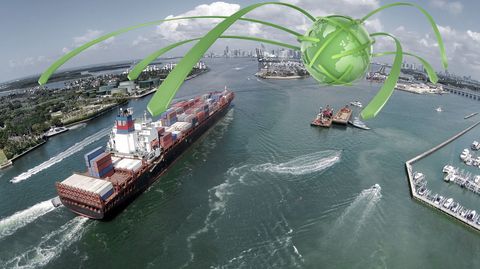The international trade landscape has been undergoing some significant changes in recent years. In the period since the global economic downturn in 2008, trading conditions have proven challenging, with many organizations predicting a weak performance in 2016 as underlying market growth remains fragile and key markets - such as China - continue to struggle with poor economic momentum.
Against this backdrop, free trade agreements (FTAs) are becoming more important than ever before, with many of the world's most prominent nations and economic blocs pursuing the growth opportunities offered by strategic trade pacts. These include the US-led Trans-Pacific Partnership (TPP) and Transatlantic Trade and Investment Partnership, as well as the Regional Comprehensive Economic Partnership (RCEP), spearheaded by the Association of Southeast Asian Nations (ASEAN).
In the last few weeks, the prospect of another potentially significant FTA has come under the spotlight, following a summit between ASEAN and Russia in Sochi on May 19th and 20th. Discussions that took place during the conference indicated a mutual desire for closer economic ties between the regions, opening up potential for considerable economic benefits to both sides.
A growing political appetite
The conversations during the summit pertained to a broader partnership between the ten ASEAN nations - Brunei, Myanmar, Cambodia, Indonesia, Laos, Malaysia, the Philippines, Singapore, Thailand and Vietnam - and the Eurasian Economic Union (EAEU), which consists of Russia, Belarus, Kazakhstan, Armenia and Kyrgyzstan. The idea of an ASEAN-EAEU FTA is one that is attracting broad-based political support.
Malaysian prime minister Najib Razak stated in an interview with RT: "The most important item is the consensus about ASEAN that we need to seriously look into establishing a free trade agreement with the EAEU."
EAEU minister for trade Veronika Nikishina noted that several ASEAN countries have independently made efforts to establish free trade zones with the EAEU, with Singapore and Cambodia having already submitted requests to this effect, while Belarus has suggested that a free trade deal could be set up between the EAEU and Indonesia. Russia, meanwhile, has previously discussed the idea of a free trade zone between the EAEU and Thailand.
Russian first deputy minister for economic development Alexei Likhachyov said: "The potential for growth is there, and joint investments can grow many times over if we make more effort to support our companies' projects on a bilateral basis."
The potential benefits
The economic benefits of such an FTA could be considerable, when considering the fact that the combined GDP of the 15 ASEAN and EAEU member states come to $3.5 trillion (€3.1 trillion). An FTA could potentially give companies access to a combined market with a collective population of 755 million people, meaning the scale of the deal may rival TPP.
According to Mr Razak, the remit of the deal would be expected to be confined to facilitating the movement of goods and reducing tariffs, rather than encompassing political sovereignty issues.
From Russia's perspective, an ASEAN-EAEU trade deal could help its economy to capitalize on some of its existing strengths. Mr Likhachyov observed that trade turnover between Russia and the ASEAN member states increased by 20 per cent in the first quarter of 2016, making ASEAN the only association that indicated a positive dynamic in imports to Russia during that period.
He said: "Russia did not have positive trade dynamics in this year's first quarter with any other group of countries or regional association, whereas imports from ASEAN member states have grown in dollar terms, the most accurate estimate."
The official went on to note that any potential deal would require certain issues pertaining to certification and customs administration to be cleared up, while efforts will need to be made to take into account the views of businesspeople who have been raising the idea of establishing special economic zones and free trade zones.
Further talks are likely to be held between the ASEAN and EAEU blocs in order to capitalize on the momentum generated by the Sochi summit. Whether the potential such an FTA would provide can be brought to fruition in reality remains to be seen over the coming months.






